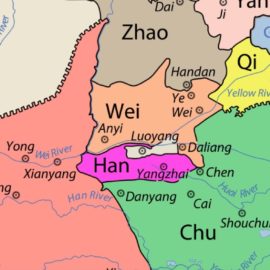

This article is an excerpt from the Shortform book guide to "The Defining Decade" by Meg Jay. Shortform has the world's best summaries and analyses of books you should be reading.
Like this article? Sign up for a free trial here .
Do you want to know how to network for a job? Why do you need to network and what steps can you take?
Learning how to network for a job is an important part of having a career. More likely than not, you’ll get career boosts from these weak ties, so it’s important to cultivate them.
Read more about how to network for a job.
How to Network For a Job: Getting Started
At one point or another, the vast majority of twenty-somethings have been unemployed or underemployed, working at low-skilled jobs they are highly overqualified for. This is sometimes necessary; forces beyond their control might compel them to, and oftentimes these jobs are a means to an end—a source of cash during grad school, for example.
But it is easy to fall into a trap of living day-by-day, spending long periods of time in low-end jobs and delaying meaningful career choices. Unfortunately, this is a poor strategy for long-term happiness. Research shows that chronically underemployed people are more depressed than their peers, and unemployment in a person’s twenties is a strong predictor of future depression and drinking problems, even after that person becomes employed.
Extended periods of voluntary underemployment and unemployment can also do lasting harm to a person’s career prospects and future happiness. A delay in starting a career can permanently depress long-term wages, as the majority of lifetime wage growth typically happens during the first ten years of a career, before responsibilities like families and mortgages prevent a person from pursuing opportunities that would increase her salary like higher education or cross-country moves. This is an important thing to think about when considering how you’ll learn to network for a job.
How to Cultivate Your Weak Ties: Getting Started
Once you know the importance of networking, it doesn’t mean people actually know how to network for a job. People often feel uncomfortable asking for help from weak ties. They’d prefer to get a job on their own, or they don’t feel “networking” fits with who they are. But because new opportunities almost always come from outside your circle of close contacts, it’s important to reach out. Ignoring the potential of weak ties can only shut you off from opportunities.
Fortunately, you have human nature on your side: People naturally like to help other people. Humans have an innate tendency towards altruism. Studies show that acting altruistically leads to health, happiness, and longevity. In short, it feels nice to act nice.
Additionally, when someone does you a favor, she’s far more likely to do you another in the future. This is because of another quirk of human nature: Behavior shapes attitudes. When someone helps you, her brain tells her she likes you and she’s inclined to help you again.
A great way to approach a weak tie is to ask her for a small, interesting, specific, and easy-to-accomplish favor. Ben Franklin outlined this idea in his autobiography. He wanted to foster a connection with a certain politician. Instead of trying to win him over by acting servile or overly complimentary, he asked him if he could borrow a specific book he’d discovered the politician owned. The politician sent it over, and after that, took Franklin under his wing and helped his career for years afterwards Here’s how to network for a job:
The important elements of Franklin’s request were:
- He researched his target.
- He made himself relevant: He matched his request to his target’s area of expertise.
- He made himself interesting: His request was unusual.
- He asked for a specific, clearly-defined, and easy-to-execute favor.
- He came across as a serious, professional person.
When approaching your weak tie, whether it be for a letter of recommendation, introduction, or informational interview, follow Franklin’s structure:
- Research your target: Find out any relevant information that might connect you.
- Make yourself relevant: Find a connection to your target’s expertise.
- Make yourself interesting: Show some personality.
- Make your request specific: Don’t approach someone with a vague, “Can we meet for coffee?” Instead, let her know what exactly you’d like to discuss.
- Make your request easy to execute: Don’t ask for advice that would require lengthy, thoughtful responses on a broad subject like what you should do with your life. Ask instead for advice on a specific aspect of one particular industry you’re interested in.
Cultivating weak ties is a great way to expand the set of potential options available to you. As we’ll explore in the next section, you can’t make choices if you don’t have options.

———End of Preview———
Like what you just read? Read the rest of the world's best book summary and analysis of Meg Jay's "The Defining Decade" at Shortform .
Here's what you'll find in our full The Defining Decade summary :
- Why the twenties are your most important decade
- How you were fooled into thinking it was an extended period of youth and freedom
- Why you should use this decade to find personal and professional success






